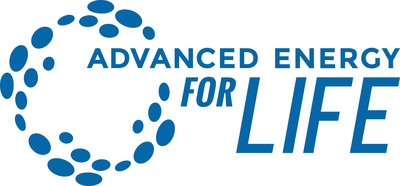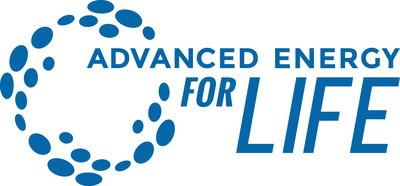Press Releases
ST. LOUIS, Nov. 11, 2014 /PRNewswire/ -- Peabody Energy (NYSE: BTU) President and Chief Operating Officer Glenn Kellow today appealed to world leaders to recognize the world’s tremendous need for energy, the importance of a balanced fuel portfolio to address vast energy inequality, and the critical role technology-led solutions must play in meeting the world’s environmental objectives during a keynote address at the Brisbane Global Café.
“As leaders of G20 member nations prepare to convene this week, economic growth, global poverty, geopolitical insecurity and pandemic threats are among the most pressing concerns,” Kellow said. “Access to energy plays a vital role in addressing each of these issues.”
Between 2010 and 2030, electricity demand growth is expected to climb nearly
70 percent, based on the International Energy Agency’s current policy scenario. This is equivalent to adding all of the United States, the European Union, Africa, China and Japan combined to the world’s energy consumers.
More than 70 million people are expected to be added to cities annually, resulting in much greater use of energy intensive devices. This growth is underpinned by the need for massive infrastructure development programs to build highways, hospitals, schools and airports. These services will require large amounts of resources and the energy to power them.
Against this backdrop of population growth and urbanization, there is a major gap between those who have access to the energy required to thrive and those who do not. A balanced energy portfolio – including 21st century coal – is the fundamental means to respond to this challenge while addressing environmental objectives, according to Kellow.
The concept of 21st century coal was introduced by the governments of China and the United States in the context of an international partnership to advance clean energy solutions from coal in 2009. It includes high-efficiency supercritical generation as well as today’s advanced coal technologies that drive ultra-low emissions.
Coal fuels more than 40 percent of the world’s electricity and is the primary fuel with the reliability, affordability and abundance to meet the world’s growing energy demand at scale. Coal has created energy access for more than 830 million people since 1990, largely in emerging economies, according to one study. This equates to providing access to 13 times more people than wind and solar.
An entire suite of technologies has been developed to reduce key emissions. These efficient controls are used in coal plants across the United States and globally and are driving major improvements in air quality. Since 1970, coal used for electricity in the United States has nearly tripled whilst the key emissions rate per megawatt hour has been reduced by 90 percent. This is an enormous success story that doesn’t receive nearly enough attention.
In China, the role of rapid environmental progress is even more astonishing, Kellow said. In the next four to six years, China will move aggressively to implement air quality measures that took the United States four decades to achieve. China’s efforts are on a scale that is nearly three times that of the United States.
The need to create solutions to achieve energy objectives is also gaining increased focus globally. Approximately a half-million citizens from 48 nations have urged G20 member nations to place greater focus on advancing policies to alleviate energy poverty in the past eight weeks. This is based on a digital “Lights On Project” movement sponsored by Peabody’s Advanced Energy for Life campaign.
Kellow appealed to attendees and global leaders to listen to global voices and work together toward shared goals to improve the energy, economic and environmental fabric of society in a fundamental way. He advanced the following multi-step policy plan:
- Elevate the issue of energy inequality as a major priority for policy and action. Global energy poverty should be a key focus area for the G20’s 2015 agenda;
- Recognize the tremendous impact of energy policy on all citizens and the importance of keeping energy available and costs low. Any new energy policy recommendations should show how energy access increases and energy affordability is strengthened;
- Embrace a true “all of the above” energy strategy that recognizes all quantifiable benefits and limitations for each fuel alternative. For coal, this includes supercritical technologies with advanced emissions controls for all new coal plants;
- Support continued investment in advanced coal technologies to minimize emissions and drive down costs; and
- Promote development bank funding to expand broad electricity access in emerging markets.
“We face the multiple challenges of satisfying long-term energy needs to meet the consistent drumbeat of global growth, the immediate task of addressing the needs of the energy poor and the environmental goal of lower emissions. The debate is complex and nuanced, and there is risk in over simplifying the discussion. It is a delicate balance with very high stakes,” Kellow said.
“Energy enables us to live longer, richer, healthier lives. Going forward, a balanced energy portfolio will be critical to ensuring widespread energy access,” Kellow said. “With today’s advanced coal-generation technologies, 21st century coal will be an essential part of ensuring we achieve our economic, energy and environmental objectives.”
For those who want to learn more about the Lights On Project, alleviating energy poverty, increasing access to low-cost electricity and advancing technology solutions, visit AdvancedEnergyForLife.com and Advanced Energy for Life on Facebook and YouTube. Use our Twitter handle @AdvancedEnergy.
Peabody Energy is the world’s largest private-sector coal company and a global leader in sustainable mining, energy access and clean coal solutions.
CONTACT:
Beth Sutton
+1 (928) 221-6792
bsutton@peabodyenergy.com


Logo - http://photos.prnewswire.com/prnh/20120724/CG44353LOGO
Logo - http://photos.prnewswire.com/prnh/20140226/CG70548LOGO
SOURCE Peabody Energy

